![Medicine - Cancer Biology E-Newsletter [Vanderbilt University]](https://cdn.vanderbilt.edu/vu-URL/wp-content/uploads/sites/119/2017/11/19151037/cancer-biology-design-004.png)
|
|
February 2023
|
|

In February, we often get a quick glimpse of spring, giving us hope that winter is nearly over, but that hope is quickly quenched as another cold front moves in, often with snow and ice. This weather cycle is reminiscent of our scientific experiments, where that first experiment offers hope that our hypothesis is correct, but upon more in-depth experimentation, we find that there is variability in our observed response and more  experimentation is needed to clarify the reason for the variability and lack of reproducibility. But let us never forget that just as spring will come, if we are patient, we will find the answers as we continue our experimentation with patience and diligence. experimentation is needed to clarify the reason for the variability and lack of reproducibility. But let us never forget that just as spring will come, if we are patient, we will find the answers as we continue our experimentation with patience and diligence.
As our graduate students are beginning to prepare for their qualifying exam, we need to remind them of the light that always comes with morning! 
It is often a tough time, but you will prevail and emerge stronger and more assured that you have what it takes to earn the PhD. Faculty and postdocs too, may have just completed a long push to submit grant applications –and now the time for patience and persistence has come as we continue to do experiments that will provide additional preliminary data, should we need to resubmit. It is always a vicious cycle, but one that brings out our “True Grit” and determination to make a difference in this world. So keep in mind spring will come, and there will be Light after Darkness. February will turn to March with spring flowers and warmer days!
Ann Richmond, PhD
Faculty Spotlight:
 Mary Philip, PhD, MD Mary Philip, PhD, MD
Assistant Professor of Medicine, Division of Hematology/Oncology, Assistant Professor of Pathology, Microbiology and Immunology.
Dr. Philip’s lab is studying tumor-reactive T cells that are often found in patients’ tumors; however, the tumors grow unimpeded, and thus, the T cells have been rendered dysfunctional. The overall goal of our laboratory is to understand how tumor-specific T cells become dysfunctional. We use genetically-engineered mouse models where we can track tumor-specific T cells as they differentiate in developing tumors and dissect the immunophenotypic, functional, transcriptional, and epigenetic properties of T cells using flow cytometry and next-generation sequencing. By unraveling the molecular pathways that lead to T-cell dysfunction in cancer, we can devise new strategies for cancer immunotherapy.
Dr. Philip’s enjoys running with her dogs Bo and Luna, reading, tennis, making music, cooking, and gardening. Visit the Philip Lab here.
Postdoctoral Fellow Spotlight:
 Zachary Bacigalupa, PhD Zachary Bacigalupa, PhD
Dr. Bacigalupa is a Post-doctoral research fellow in the Hematology & Oncology division at Vanderbilt University Medical Center. He is in his 5th year under the mentorship of Dr. Kimryn Rathmell and co-mentored by Dr. Jeffrey Rathmell, where his research is focused on identifying actionable metabolic vulnerabilities in ccRCC. Dr. Bacigalupa’s primary project has identified acetate metabolism as a novel mechanism to regulate the transcription, stability, and downstream signaling of HIF-2alpha, the major driver of ccRCC. This work is currently being revised for resubmission to the Journal of Clinical Investigation. In addition to the above project, he is actively developing a CRISPR screening strategy that will provide single-cell resolution and spatial insights into critical regulators of tumor biology. He hopes this work will lay the foundation for his independent research career. Outside of the lab, 100% of his time and focus is spending time with his wife and two kids. They love to take trips to the zoo, check out our local playgrounds, and enjoy all the fun little moments that come with early childhood.
Graduate Student Spotlight:
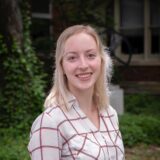 KayLee Steiner, BS KayLee Steiner, BS
(Jeff Rathmell Lab)
KayLee utilizes in vivo CRISPR screens to identify metabolic genes of interest that give T cells selection advantages or disadvantages in inflammatory disease models. She has identified Mitochondrial Trans-2-Enoyl Coenzyme A Reductase (Mecr) as a positive regulator of CD4+ T cell proliferation and survival in lung inflammation and graft vs. host disease models in addition to a tumor immunotherapy model. Mecr catalyzes the last step in mitochondrial fatty acid synthesis to create Acyl-ACP. Using single guide CRISPR/Cas9 to knockout Mecr, oxidative phosphorylation was analyzed and showed Mecr-knockout cells had a significantly decreased oxidative consumption rate (OCR) in Th17 CD4+ T cells. When tested in a Th17-driven in vivo inflammatory bowel disease model, the proportion of Mecr knockout cells compared to a non-targeting control was decreased in the spleens, mesenteric lymph nodes, and lamina propria as well as reduced Tbet mean fluorescence intensity. This shows that Mecr is important in the survival of CD4+ T cells. In further studies, KayLee aims to investigate further the requirement of Mecr in different CD4 T cell subsets and in inflammatory diseases as well as evaluate the role of Mecr in T cell metabolism. In her free time, KayLee helps coach the Vanderbilt Rowing club team after she rowed for them her first two years as a graduate student. She also enjoys cooking, watching the Buffalo Bills play football, and spending free time with friends.
Newly minted PhD in the Program of Cancer Biology
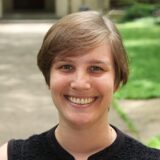 Samantha Beik, PhD Samantha Beik, PhD
(Lopez & Quaranta Lab)
Dr. Beik’s dissertation defense discussed her research on “Evaluating Heterogeneity and Phenotypic Transitions in Small Cell Lung Cancer via Mechanistic Modeling.”
Small cell lung cancer (SCLC) is a phenotypically heterogeneous disease comprising multiple cellular subtypes within a tumor that exhibit differential sensitivity to drug treatments. SCLC heterogeneity is hypothesized to be responsible for the rapid development of chemotherapy resistance, leading to the dismal 6% five-year survival rate for this disease. We explore mechanistic hypotheses of SCLC tumor behavior using Bayesian multi model inference (MMI), probing unanswered questions in the SCLC field about heterogeneity, lineage plasticity, and cell-cell interactions in the tumor system. Integrating multiple existing datasets and simulating tumor growth via population dynamics modeling, our approach directly enables estimating how informative the data are for a given mechanistic hypothesis and whether multiple hypotheses support the data equally well. Our analyses result in a probabilistic view of subtype behaviors, including a high likelihood of phenotypic transitions across the differentiation hierarchy in SCLC rather than cancer stem cell-like sub clone(s) driving tumor dynamics. This work yields a novel probabilistic understanding of SCLC tumor growth mechanisms, highlighting what data support mechanistic knowledge and identifying which desired knowledge requires further experiments. With higher-probability growth mechanisms predicting that any SCLC subtype can repopulate the tumor post-treatment, modulation of tumor composition and effects on treatment resistance can be assessed experimentally to move the field forward and decrease the burden of this aggressive disease.
Program in Cancer Biology Faculty and Trainee News and Research:
 Logan Northcutt, BS Logan Northcutt, BS
has been selected as a 2023 scholar for the Janssen Scholars of Oncology Diversity Engagement Program. This is an exciting opportunity to learn more about oncology R&D at The Janssen Pharmaceutical Companies of Johnson & Johnson.
Logan has also been selected as a 2023 participant in the Future Leaders Advancing Research in Endocrinology program. The FLARE program is highly competitive, and participants are elected nationwide.

Neil Osheroff, PhD (Biochemistry)
Dr. Osheroff is part of an international research collaboration resulting in what is on track to be the first new antibiotic treatment for uncomplicated urinary tract infections in more than 20 years. Further research in the Osheroff Lab can be viewed here.
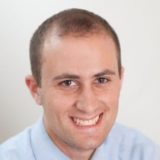 A multidisciplinary team led by Vanderbilt University Medical Center investigator Alexander Bick, MD, PhD, has been awarded a $2 million, four-year grant from the Chan Zuckerberg Initiative to study inflammation at the single-cell level in the rare disease RUNX1-FPD. The team includes the RUNX1 Research Program, a nonprofit patient organization, and investigators at St. Jude Children’s Research Hospital and Oregon Health & Science University. Read more here A multidisciplinary team led by Vanderbilt University Medical Center investigator Alexander Bick, MD, PhD, has been awarded a $2 million, four-year grant from the Chan Zuckerberg Initiative to study inflammation at the single-cell level in the rare disease RUNX1-FPD. The team includes the RUNX1 Research Program, a nonprofit patient organization, and investigators at St. Jude Children’s Research Hospital and Oregon Health & Science University. Read more here

Brandie Taylor, MS
(Balko Lab)
Congratulation to Brandie on receiving the AACR-JCA Minority Scholar in Training Award! Since its inception in 1986, the AACR Annual Meeting Scholar-in-Training Award program has provided over 5,000 grants to young investigators and has received support from 67 cancer research foundations, corporations, individuals, and other organizations dedicated to the fight against cancer. Scholar-in-Training Awards are highly competitive and recognize outstanding young investigators presenting meritorious proffered papers at the AACR Annual Meeting. Scholar-in-Training Award funds are to support attendance at the AACR-JCA annual meeting.
 Scott Haake, MD, PhD Scott Haake, MD, PhD
Assistant Professor of Medicine
(Hematology and Oncology)
The Young Physician-Scientist Award recognizes the impact that physician-scientists made early in their first faculty appointments on human health through their scientific discoveries. Dr. Haake is one of the scientists recognized by ASCI for the Young Physician-Scientist award, which recognizes the impact that physician-scientists early in their first faculty appointments have made on human health through their scientific discoveries. Also, Dr. Haake was recently awarded grant funding from Kure It Cancer Research. Read the article here.
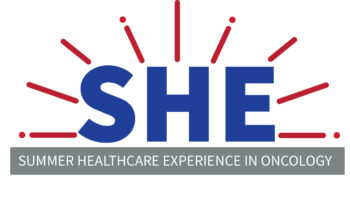
The Summer Healthcare Experience (SHE) in Oncology is a summer experience for high school girls interested in exploring careers in cancer research and medicine. This virtual, 2-week program will take place July 10th-21st this year and is available to rising sophomores, juniors, and seniors within VICC’s catchment area. Vanderbilt launched the SHE program in 2022 and is looking forward to our next cohort of students in 2023! Please share this opportunity with everyone who might be interested. Applications are due on or before April 3rd at this link.
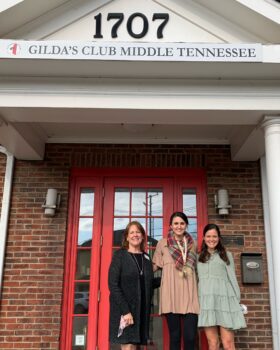
Gilda’s Club has invited members of the Vanderbilt community to participate in another service event to benefit their organization. The Gilda’s Gang 5k and 1-mile Fun Run will be held on April 1 at Shelby Park in East Nashville. There are many ways to get involved with this event, including many volunteer options, or you can sign up as a runner for the event! Register below:
Announcement Email
Website
|
|
CONFERENCES OF INTEREST:
Al Reynolds Memorial Symposium. Please join us Friday, April 28, 2023, from 1 pm-5:15 pm in Light Hall, Room # 202.
Association of Biochemistry Educators (ABE). April 30-May 4th, 2023. Kiawah Island, SC. Register here
VI4 Annual Symposium. Thursday, April 13, 2023.
Register Here
Submit Abstract Here
2023 AACR Annual Meeting, April 14-19, 2023. Orange County Convention Center, Orlando, FL.
Register here
Immunology 2023. May 11-15, 2023, in Washington, DC.
Register here
2023 Southeast Immunology Symposium (SIS). SIS will be held in the Student Life Center at Vanderbilt University on June 12-13, 2023, from 9:00 am to 6:00 pm. Vanderbilt trainees will be reimbursed for their registration, please enter the PROMO CODE “VU2023SIS.”
Faculty Registration
Trainee Registration
Federation of Clinical Immunology Societies- FOCIS 2023 Annual Meeting. June 20-23, 2023. Boston, MA.
Register here
RECENT VANDERBILT FACULTY AND TRAINEES PUBLICATIONS:
An immunogenic cell injury module for the single-cell multiplexed activity metabolomics platform to identify promising anti-cancer natural products
Joseph A Balsamo, Kathryn E Penton, Zhihan Zhao, et al. J Biol Chem. 2022 Sept; 298 (p):102300.
Genome- and transcriptome-wide association studies of 386,000 Asian and European-ancestry women provide new insights into breast cancer genetics. Guochong Jia, Jie Ping, Xiang Shu, et al. Am J Hum Genet. 2022 Dec 1 ;109(12):2185-2195.
SETD2 regulates the methylation of translation elongation factor eEF1A1 in clear cell renal cell carcinoma Hapke R, Venton L, Rose KL, Sheng Q, et al. Kidney Cancer J. 2022;6(3):179-193.
Corticosteroids and Cancer Immunotherapy. Goodman RS, Johnson DB, Balko JM. Clin Cancer Res. 2023 Jan 17:CCR-22-3181.
Elevated transferrin receptor impairs T cell metabolism and function in systemic lupus erythematosus Kelsey Voss, Allison E Sewell, Evan S Krystofiak, et al. Sci Immunol. 2023 Jan 13;8(79):eabq0178.
Learning cell identity in immunology, neuroscience, and cancer Medina S, Ihrie RA, Irish JM. Semin Immunopathol. 2022 Dec 19:1-14.
BCL-xL inhibition potentiates cancer therapies by redirecting the outcome of p53 activation from senescence to apoptosis Bharti V, Watkins R, Kumar A, Shattuck-Brandt RL, et al. Cell Rep. 2022 December 20;41(12):111826.
Lipid kinase PIK3C3 maintains healthy brown and white adipose tissues to prevent metabolic diseases Song W, Postoak JL, Yang G, et al. Proc Natl Acad Sci U S A. 2023 January 3;120(1).
Matrix protein Tenascin-C promotes kidney fibrosis via STAT3 activation in response to tubular injury. Xie Q, Zhang M, Mao X, et al. Cell Death Dis. 2022 December 15;13(12):1044.
The Association between Exposures and Disease Characteristics in Familial Pulmonary Fibrosis. Copeland CR, Donnelly EF, Mehrad M, et al. Ann Am Thorac Soc. 2022 Dec;19(12):2003-2012.
Using the HER2/CEP17 FISH Ratio to Predict Pathologic Complete Response Following Neoadjuvant Anti-HER2 Doublet Therapy in HER2+ Breast Cancer. Lander EM, Rappazzo KC, Huang LC, et al. Oncologist. 2022 Dec 10:247.
The nutraceutical electrophile scavenger 2-hydroxy benzylamine (2-HOBA) attenuates gastric cancer development caused by Helicobacter pylori. Gobert AP, Asim M, Smith TM, et al. Biomed Pharmacother. 2022 December 6;158:114092.
Feedback in the β-catenin destruction complex imparts bistability and cellular memory Cantoria MJ, Alizadeh E, Varghese R, et al. Proceedings of the National Academy of Sciences, USA. 2023 January 4; 120(2).
Olutasidenib alone or with azacitidine in IDH1-mutated acute myeloid leukemia and myelodysplastic syndrome: phase 1 results of a phase 1/2 trial. Watts JM, Baer MR, Yang J, Ferrell PB Jr, et al. Lancet Haematol. 2023 Jan;10(1):e46-e58.
Acly Deficiency Enhances Myelopoiesis through Acetyl Coenzyme A and Metabolic-Epigenetic Cross-Talk Greenwood DL, Ramsey HE, Nguyen PTT, et al. Immunohorizons. 2022 December 1;6(12):837-850.
Racial/ethnic and sex differences in somatic cancer gene mutations among patients with early-onset colorectal cancer Andreana N Holowatyj, Wanqing Wen, Timothy Gibbs, et al. Cancer Discov. 2022 December 15; CD-22-0764.
Differential pre-malignant programs and microenvironment chart distinct paths to malignancy in human colorectal polyps. Chen B, Scurrah C, McKinley ET, et al. Cell. 2021 December 22;184(26):6262-6280.
Sex Hormones in Breast Cancer Immunity. Ebony Hargrove-Wiley, Barbara Fingleton. Cancer Research (2023) 83 (1):12-19.
A practical approach to curate clonal hematopoiesis of indeterminate potential in human genetic datasets. Caitlyn Vlasschaert, Taralynn Mack, Jonathan Brett Heimlich, et al. Blood, 2023 January 18; blood. 2022018825.
Lymphoid clonal hematopoiesis: implications for malignancy, immunity, and treatment. von Beck K, von Beck T, Ferrell PB Jr, Bick AG, et al. Blood Cancer J. 2023 January 4;13(1):5.
Visualization of Exosome Release and Uptake During Cell Migration Using the Live Imaging Reporter pHluorin_M153R-CD63. Sung BH, Weaver AM. Methods Mol Biol. 2023;2608:83-96.
Training Tomorrow’s Physicians in Value-Conscious Medicine Makhoul AE, Kertai MD, Powers J, Dahlman KB, et al. Acad Med. 2023 January 24.
Metabolic programming and immune suppression in the tumor microenvironment Review Emily Arner, Jeffrey Rathmell. Cancer Cell. 2023.02.009.
Context-specific regulation of extracellular vesicle biogenesis and cargo selection. Andrew C Dixson, T Renee Dawson, Dolores DiVizio, Alissa Weaver. Nat Rev Mol Cell Biol. 2023 February 10.
Niche tension controls exosome production. Toni Renee Dawson, Alissa M Weaver. Nature Cell Biology (2023, February 16).
CALENDAR OF EVENTS VANDERBILT:
Medical Grand Rounds Livestream
TEDxVanderbiltUniversity 2023
Vanderbilt Calendar
Student Center for Social Justice & Identity
V14 Seminar Series Schedule
EXTERNAL/INTERNAL GRANT FUNDING OPPORTUNITIES ON THE VANDERBILT – INGRAM CANCER CENTER WEBSITE:
VIEW HERE
The Howard Hughes Medical Institute announced an open competition to appoint 25 new investigators who will receive roughly $8 million over a seven-year term, renewable pending favorable scientific review. Apply by March 21.
To all trainees in Heme-Onc: opportunity with the American Association for Cancer Research (AACR) year industry-academic fellowship to train in drug development with industry partners! Apply here: AACR
|
|

Melissa Wolf BS, Logan Vlach BS, and Emily Arner, PhD, trainees in the Dr. Kimryn Rathmell lab, are investigating molecular mechanisms of metastasis in Renal Cell Cancer. Their research states that tumors across human cancer are high-grade, poorly differentiated, have undergone epithelial-to-mesenchymal transition (EMT) and carry a worse prognosis with an increased likelihood of metastasizing to distant organs. Despite significant research efforts, metastatic cancers and relapse remain the primary cause of cancer-related deaths. In renal cell carcinoma (RCC), metastasis is present in one-third of patients at the time of diagnosis, and one-third of patients who initially present with locally advanced disease eventually develop local or distant recurrence following resection of the primary tumor, highlighting the need for new RCC therapies and further insight into the metastatic process. Using patient biopsies, immunohistochemistry, sequencing, and available clinical data in a cohort of RCC patients, they found that patients whose tumors had a mesenchymal protein signature had significantly increased infiltration of macrophages within their tumors. Additionally, increased macrophages in the primary tumor were significantly associated with a higher tumor stage at diagnosis and worse overall survival, suggesting that macrophages may play an important role in EMT in ccRCC. Furthermore, whole exome sequencing revealed that patients with increased macrophage infiltrate had a mutational loss of SETD2, a histone methyltransferase. Additionally, macrophages and EMT are correlated when SETD2 is lost in ccRCC patients. They are currently investigating if SETD2 loss plays a role in the recruitment of macrophages to the tumor and how the loss of this gene promotes EMT. Further characterization of the gene signatures, metabolic phenotypes, and immune cell infiltration within these patient samples will lead to a better understanding of epithelial plasticity in an oncogene- and tissue-specific manner.
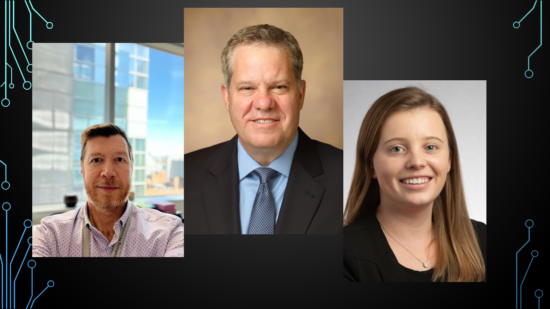
Alain P Gobert PhD, Keith T Wilson MD, and Kara M McNamara, BS.
Stomach cancer is a leading cause of cancer death. Helicobacter pylori is a bacterial gastric pathogen that is the primary risk factor for carcinogenesis, associated with its induction of inflammation and DNA damage. Dicarbonyl electrophiles are generated from lipid peroxidation during the inflammatory response and form covalent adducts with amine-containing macromolecules. 2-hydroxy benzylamine (2-HOBA) is a natural compound derived from buckwheat seeds and acts as a potent scavenger of reactive aldehydes. Our goal was to investigate the effect of 2-HOBA on the pathogenesis of H. pylori infection. We used transgenic FVB/N insulin-gastrin (INS-GAS) mice as a model of H. pylori-mediated gastric cancer. First, we found that 2-HOBA is bioavailable in the gastric tissues of these mice after supplementation in the drinking water. Moreover, 2-HOBA reduced the development of gastritis in H. pylori-infected INS-GAS mice without affecting the bacterial colonization level in the stomach. Further, we show that the development of gastric dysplasia and carcinoma was significantly reduced by 2-HOBA. Concomitantly, DNA damage was also inhibited by 2-HOBA in infected mice and in human gastric epithelial cells infected in vitro with H. pylori. In conclusion, 2-HOBA, which has been shown to be safe in human clinical trials, represents a promising nutritional compound for the chemoprevention of the more severe effects of H. pylori infection. Read here

Dennis Jeppesen PhD, Robert J Coffey MD, Jeffrey L Franklin PhD,
Qin Zhang PhD.
The study of extracellular vesicles (EVs) and nanoparticles (NPs) is rapidly expanding because recent discoveries have revealed a much greater complexity and diversity than was appreciated only a few years ago. New types of EVs and NPs have recently been described. Proteins and nucleic acids previously thought to be packaged in exosomes appear to be more enriched in different EV types and in two recently identified amembranous NPs, exomeres and supermeres. Thus, our understanding of the cell biology and intercellular communication facilitated by the release of EVs and NPs is in a state of flux. This review describes the different types of EVs and NPs, highlights recent advances, and presents major outstanding questions. Read more here

Rebecca Ihrie PhD, and her lab members, Asa Brockman BS, Rohit Khurana, and Todd Bartkowiak PhD, have collaborated with Christine Lovly MD/PhD, Portia Thomas PhD, and Jonathan Irish PhD, their fascinating research was recently published in the February Journal of Clinical Cytometry titled, Alignment, segmentation and neighborhood analysis in cyclic immunohistochemistry data using CASSATT.
Read the article here.

Vanderbilt’s collaborators on this grant are John Wilson PhD, Doug Johnson MD, Sebastian Joyce PhD, Jin Chen MD/PhD and Ann Richmond PhD, co-investigators.
John Wilson PhD, Associate Professor of chemical and biomolecular engineering at Vanderbilt University, has received a $3 million grant from the National Cancer Institute to develop technology seeks to boost a person’s immune system to fight cancer better. “What this grant will do is develop a new technology to help package and display the specific part of the protein from tumors in a way that boosts the ability of the immune system to generate the right type of T cells to fight cancer; we also now recognize that the specific parts of proteins from cancers can vary a lot patient to patient. So, we need strategies that allow us to efficiently identify and package those proteins in an optimum way and give us the best immune response to each patient’s specific tumor. Hopefully, this new technology will eventually be translated into the clinic where we can use it as a personalized platform to generate anti-tumor immunity for a given cancer patient,” said Wilson.

Rishub Das MD, Andrea Mancheno Lopez MD, Dominique Mosley MD, Kirsten Nguyen MD, and Samuel Ufuah MD.
The Research Education Core for the Meharry-Vanderbilt-TSU Cancer Partnership* (https://www.mvtcp.org/) is delighted to announce the Meharry-Vanderbilt-Tennessee State University Cancer Partnership (MVTCP) Medical Cancer Research Experience (MCRE) awardees for 22-23.
The MCRE aims to support Vanderbilt medical students in their pursuit of cancer health disparities research. The program provides $3K to support their research activities. In addition to financially supporting their research, this program allows them to participate in MVTCP-sponsored workshops and seminars and to mentor high school and undergraduate students in Nashville. In addition, trainees will present their work at the MVTCP and Vanderbilt-Ingram Cancer Center retreats.
Vanderbilt’s MCRE is led by Kimberly Dahlman PhD, and aims to support Vanderbilt medical students in their pursuit of cancer health disparities research.
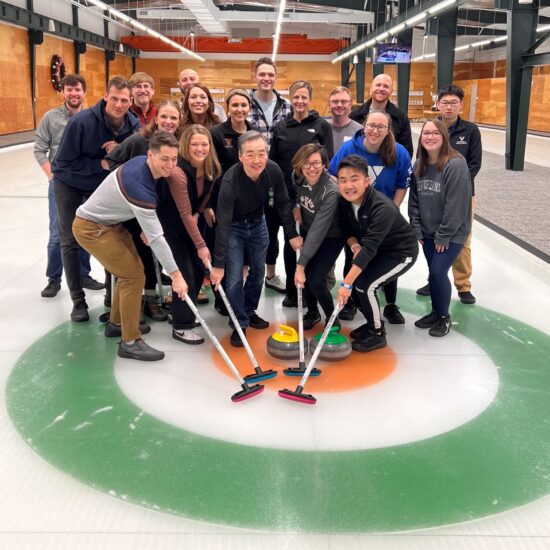
The Lab’s of Paula Hurley PhD, and Ben Ho Park MD/PhD, brought in the New Year right by celebrating at teelinnash.com , Nashville’s First Curling Venue.
 Have you received an award, a paper published or any other good news you would like to celebrate with our community? If so, please e-mail: kerry.w.vazquez@vanderbilt.edu. Newsletter header photo credit to Dr. Anna Vilgelm, “DNA Comets.” Articles and Pictures credit to VU and VUMC. Flower photo credit to unsplash. Have you received an award, a paper published or any other good news you would like to celebrate with our community? If so, please e-mail: kerry.w.vazquez@vanderbilt.edu. Newsletter header photo credit to Dr. Anna Vilgelm, “DNA Comets.” Articles and Pictures credit to VU and VUMC. Flower photo credit to unsplash.
|
|
|
Vanderbilt University is committed to principles of equal opportunity and affirmative action.
Vanderbilt®, Vanderbilt University®, V Oak Leaf Design®, Star V Design® and Anchor Down® are trademarks of The Vanderbilt University. ©2025 Vanderbilt University. All rights reserved.
|
|
![Medicine - Cancer Biology E-Newsletter [Vanderbilt University]](https://cdn.vanderbilt.edu/vu-URL/wp-content/uploads/sites/119/2017/11/19151037/cancer-biology-design-004.png)